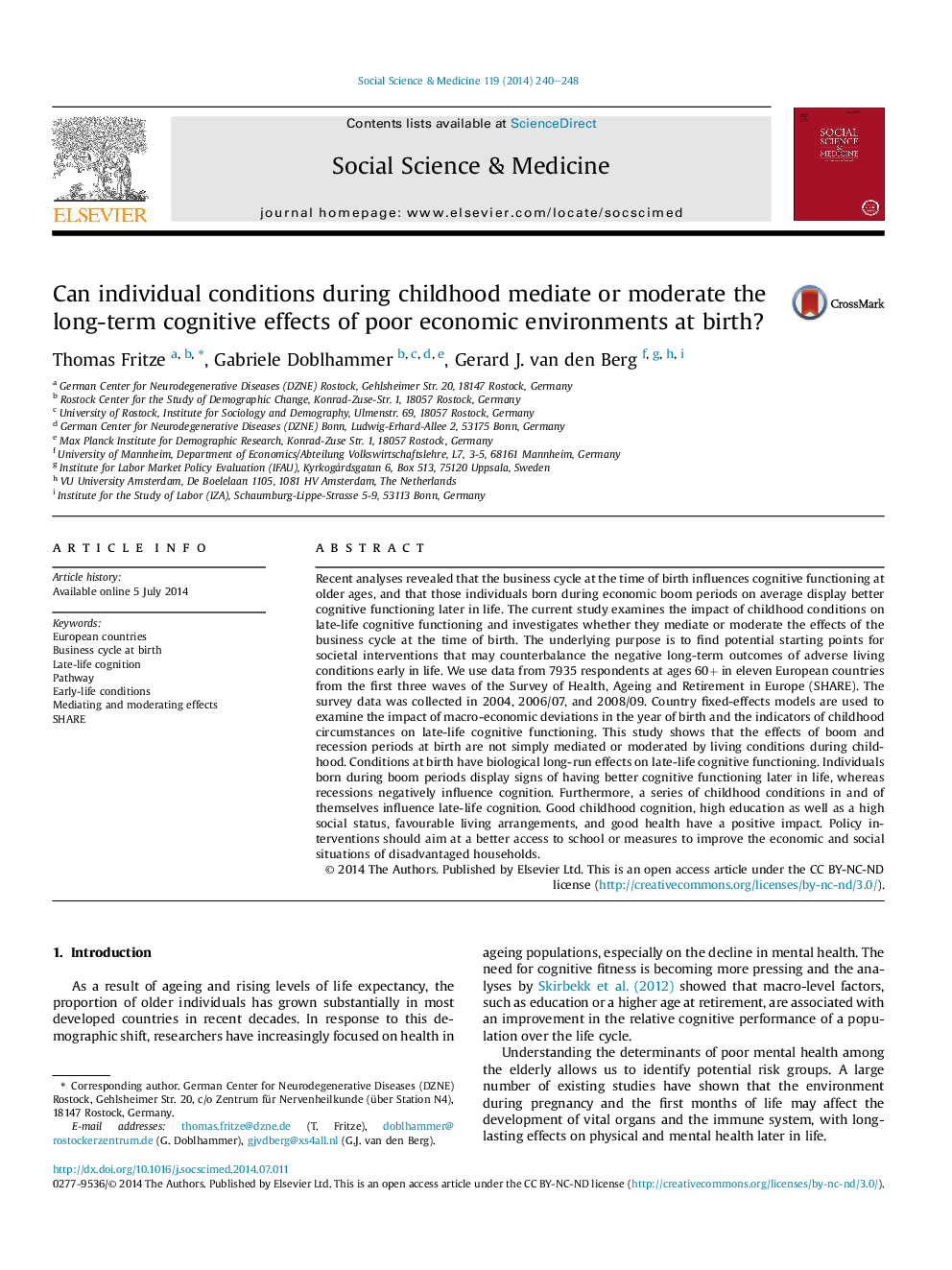| کد مقاله | کد نشریه | سال انتشار | مقاله انگلیسی | نسخه تمام متن |
|---|---|---|---|---|
| 7334289 | 1476049 | 2014 | 9 صفحه PDF | دانلود رایگان |
عنوان انگلیسی مقاله ISI
Can individual conditions during childhood mediate or moderate the long-term cognitive effects of poor economic environments at birth?
ترجمه فارسی عنوان
آیا شرایط فردی در دوران کودکی می تواند تأثیرات شناختی طولانی مدت محیط زیست اقتصادی ضعیف را در زمان تولد میانجیگری کند؟
دانلود مقاله + سفارش ترجمه
دانلود مقاله ISI انگلیسی
رایگان برای ایرانیان
کلمات کلیدی
کشورهای اروپایی، چرخه تجاری در هنگام تولد، شناخت مرحوم آیت الله، مسیر شرایط زودرس، اثرات میانجی و تعدیل کننده، اشتراک گذاری،
موضوعات مرتبط
علوم پزشکی و سلامت
پزشکی و دندانپزشکی
سیاست های بهداشت و سلامت عمومی
چکیده انگلیسی
Recent analyses revealed that the business cycle at the time of birth influences cognitive functioning at older ages, and that those individuals born during economic boom periods on average display better cognitive functioning later in life. The current study examines the impact of childhood conditions on late-life cognitive functioning and investigates whether they mediate or moderate the effects of the business cycle at the time of birth. The underlying purpose is to find potential starting points for societal interventions that may counterbalance the negative long-term outcomes of adverse living conditions early in life. We use data from 7935 respondents at ages 60+ in eleven European countries from the first three waves of the Survey of Health, Ageing and Retirement in Europe (SHARE). The survey data was collected in 2004, 2006/07, and 2008/09. Country fixed-effects models are used to examine the impact of macro-economic deviations in the year of birth and the indicators of childhood circumstances on late-life cognitive functioning. This study shows that the effects of boom and recession periods at birth are not simply mediated or moderated by living conditions during childhood. Conditions at birth have biological long-run effects on late-life cognitive functioning. Individuals born during boom periods display signs of having better cognitive functioning later in life, whereas recessions negatively influence cognition. Furthermore, a series of childhood conditions in and of themselves influence late-life cognition. Good childhood cognition, high education as well as a high social status, favourable living arrangements, and good health have a positive impact. Policy interventions should aim at a better access to school or measures to improve the economic and social situations of disadvantaged households.
ناشر
Database: Elsevier - ScienceDirect (ساینس دایرکت)
Journal: Social Science & Medicine - Volume 119, October 2014, Pages 240-248
Journal: Social Science & Medicine - Volume 119, October 2014, Pages 240-248
نویسندگان
Thomas Fritze, Gabriele Doblhammer, Gerard J. van den Berg,
